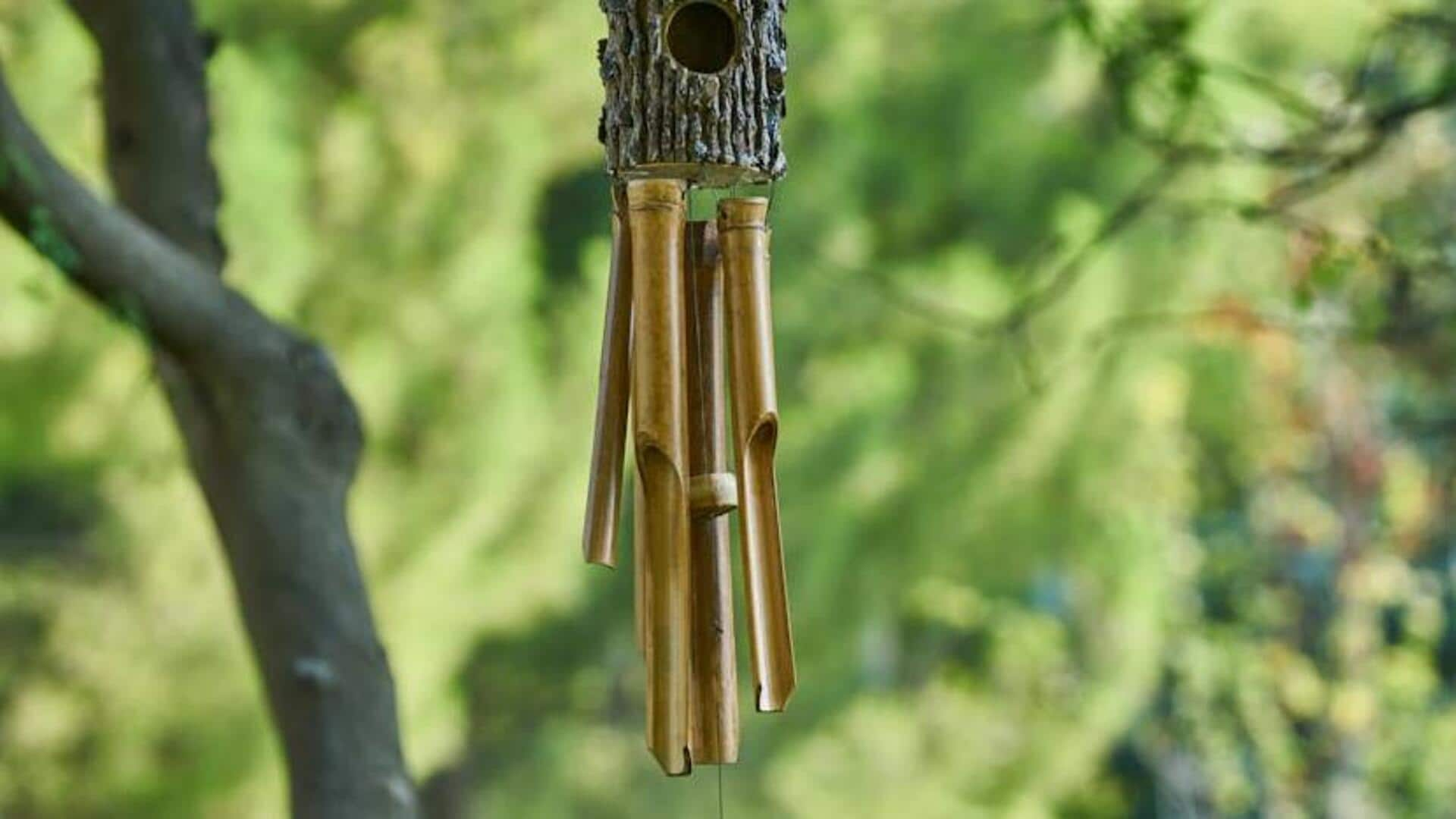
The whimsical wind chimes: Melodies in Indian and Japanese homes
What's the story
Wind chimes, while a familiar sight and sound in many homes around the world, hold a special place in the hearts and traditions of India and Japan. These tuneful trinkets aren't mere decorations - they're rich with cultural significance and spiritual symbolism. From the elements they're made of to the very melodies they create, Indian and Japanese wind chimes serve as beautiful bridges between tradition, nature, and the divine.
Significance
Cultural significance in India
In India, wind chimes hold a special significance in Vastu Shastra, the traditional Hindu system of architecture and spatial arrangement. People believe that hanging metal wind chimes at the entrance of a home invites positive energy and eliminates negative vibes. Indian wind chimes typically feature an odd number of rods, with five or seven rods being most prevalent, as odd numbers are deemed auspicious.
Furin
Japanese wind bells: Furin
Japan's beloved summer symbol: Wind chimes aka Furin Crafted traditionally from glass or metal, these chimes create a delicate tinkling sound that conjures a refreshing coolness amidst the sweltering summer heat. The sound of Furin is also believed to soothe and pacify the mind. The gentle ringing is thought to repel evil spirits and attract good luck by many Japanese.
Materials
Materials matter
The choice of material for wind chimes in India and Japan lends a distinct character to their function. India prefers brass for its longevity and melodious clink, while Japanese Furin crafted from glass or ceramic create a delicate tinkling reminiscent of a cool breeze. These materials are chosen not only for their sonic qualities but also for their cultural significance and symbolic resonance.
Artistry
Artistic expression through wind chimes
In India and Japan, wind chimes are more than just a tinkling delight; they're an art form. Indian ones often incorporate spiritual motifs or symbols (think Om), adding a layer of sacred resonance. Japanese Furin (their word for wind chime) are delicately etched with scenes of cherry blossoms or cranes, capturing the essence of Japanese aesthetics. These details elevate them from simple noisemakers to cultural objets d'art.
Selection
Choosing the right wind chime for your home
Choosing the perfect wind chime can bring balance and beauty to your home, both visually and spiritually. If you are more into Indian traditions, you should opt for brass or copper chimes with an odd number of rods for Vastu compliance. Conversely, if you appreciate Japanese aesthetics or desire a softer sound profile for your meditation space, glass Furin would be perfect.